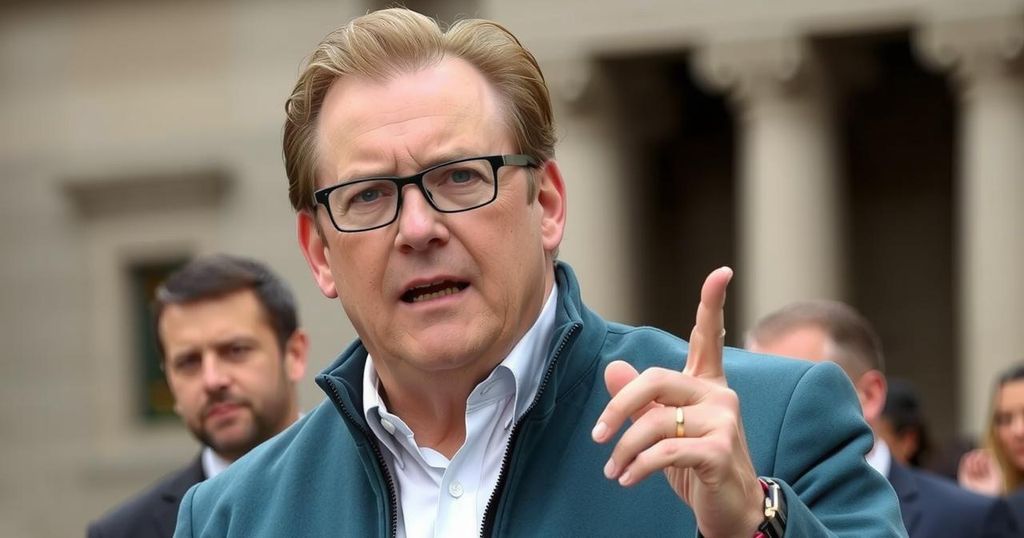The German government claims that Elon Musk is trying to influence the upcoming elections by posting support for the Alternative for Germany (AfD) party. A spokesperson defended this stance, asserting that Musk’s comments reflect misguided opinions, underscoring the potential impact of social media on democracy.
The German government has accused Elon Musk of attempting to sway its forthcoming elections through his supportive social media posts for the right-wing Alternative for Germany (AfD) party. A spokesperson for the government remarked on the situation, stating, “Freedom of opinion also covers the greatest nonsense,” highlighting the tension surrounding Musk’s online activities in relation to political matters in Germany. This declaration strengthens concerns regarding the influence of prominent figures in foreign elections and the potential implications for democratic processes.
The statement from the German government arises in the context of increasing scrutiny over social media’s role in political discourse. The AfD party, known for its far-right positions, has garnered significant support in recent years, prompting concerns from various segments within Germany about foreign intervention and misinformation. Elon Musk, as a notable figure and influential businessman, has a wide-reaching platform, raising alarms regarding the consequences of his posts on political neutrality and the integrity of elections.
In summary, the German government has openly criticized Elon Musk for allegedly attempting to influence their upcoming elections in favor of the AfD party, describing his views as “the greatest nonsense.” This incident emphasizes the ongoing debate about the role of influential figures in political discourse and the safeguarding of electoral integrity. It raises questions about how social media will shape future political landscapes both in Germany and elsewhere.
Original Source: www.newsweek.com






